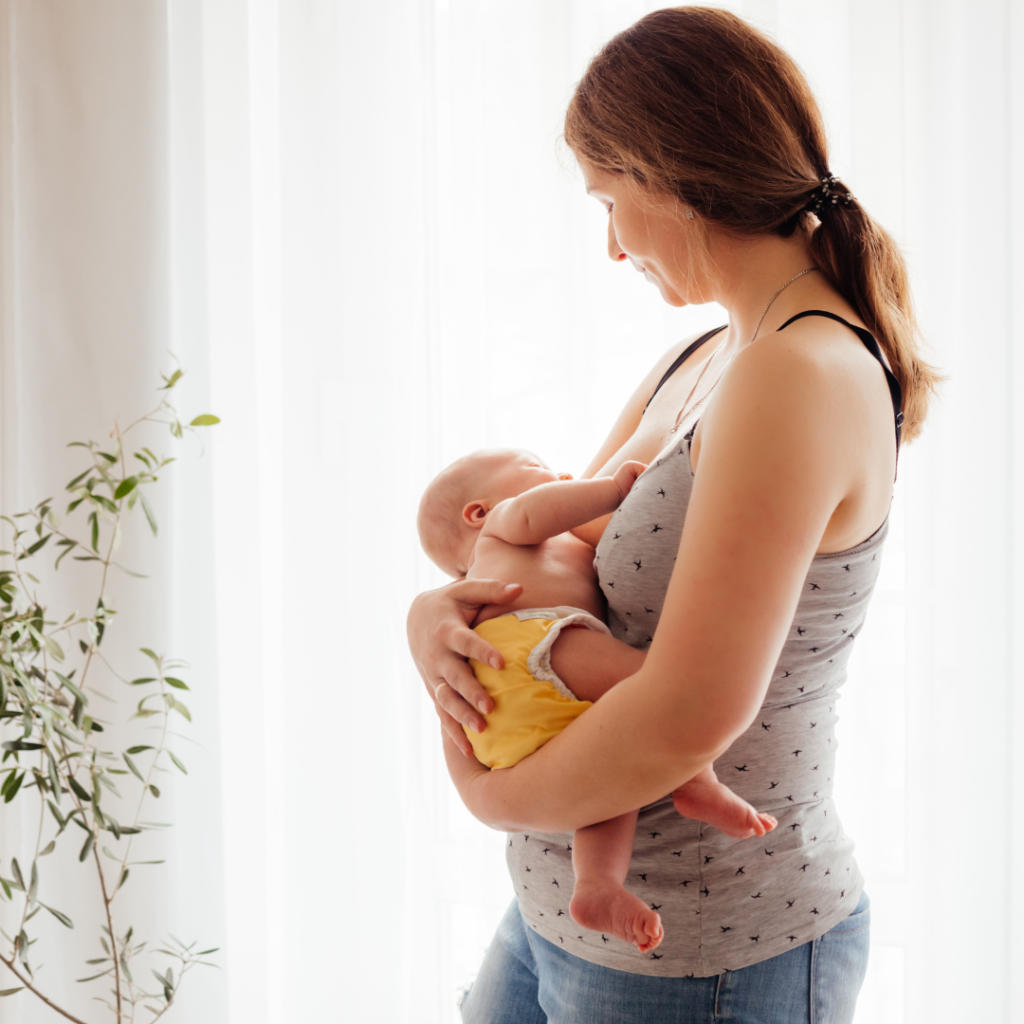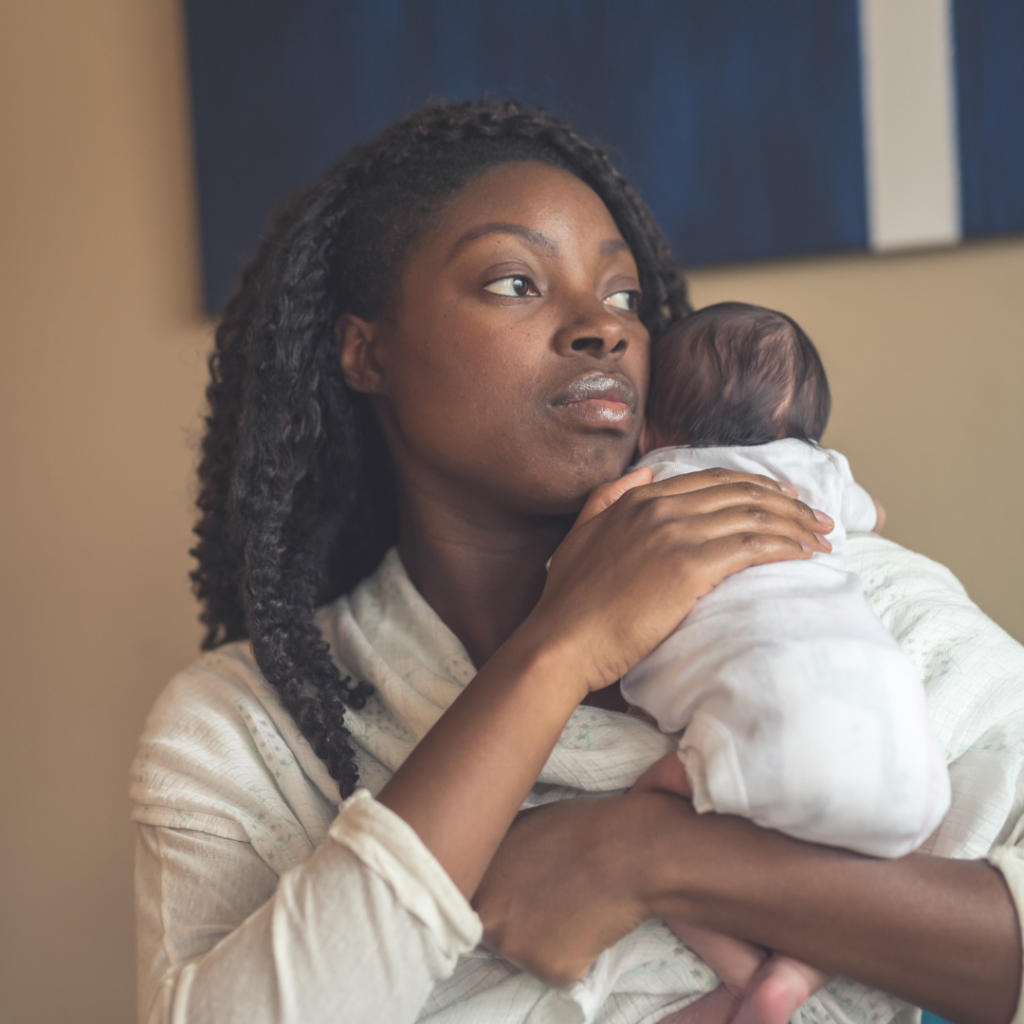There are 8 things you should know about sex after birth before it’s time to actually do it.
As a mother-baby nurse, I knew the rule. No sex until after your six week check-up with your healthcare provider. I not only knew it but had taught it over and over again to many expecting and new moms. Here’s what I was unaware of and the 8 things you should know about sex after birth.
So, that was it: “No sex until six weeks.” There was no education on what to expect when you actually could have sex again. In my own personal life, I assumed it would be “as you were soldiers” after my baby was born. We would just be a family of three instead of two.
I was in for a surprise.

Thank the Lord I had a good doctor that clued me into this at my follow up appointment. This wasn’t a subject I typically discussed with friends, and it definitely wasn’t something I thought to scour the internet for. I really didn’t realize it may even be an issue. My doctor did me a huge favor when she said, “Rachel, 6 weeks is not a magic number. It doesn’t mean you are totally healed, or even that you will want to, it means it is safe. You won’t hurt yourself doing it.” I’m so glad she said this, otherwise I would have thought something was wrong with me.
It’s not just sexual activity that may change for several weeks, it’s sexual desire too. New parents often are surprised by this, as I was. But you will be better prepared. Let’s answer some questions you may have not thought to ask and better prepare you for postpartum sex.
Here are 8 things you need to know about postpartum sex
1. Your body is still healing from childbirth, even if you had a C-section.
We go through massive changes with birth. Our hormones rise and tank and then change a lot more when breastfeeding. Our uterus does massive work with contractions. The cervix opens. We probably have tears from a vaginal delivery that must be stitched and repaired.
If we had a cesarean delivery, we are recovering from major surgery. And we bleed for several weeks as our uterus recovers and shrinks down deep into our abdomen. A common misconception is that if you have a cesarean birth, you may be able to get back to sex before the six-week appointment. It’s not a good idea. Here’s why.

What happens if I have sex before six weeks?
Having sex before six weeks after vaginal birth can cause stitches to tear, healing to be prolonged, possible uterine infection, and a risk of postpartum hemorrhage. A new mother who had a cesarean section also needs to wait six weeks for sexual intercourse. When our placenta is birthed, it leaves a large wound that needs to heal. Even when there are no vaginal tears or stitches, it is best to wait. It’s best to allow yourself that time to heal well.
The majority of healthcare providers recommend you wait to resume your sex life until 6 weeks postpartum. This healing process doesn’t automatically end at six weeks. Our body didn’t finish growing a baby in six weeks, and it isn’t going to be fully recovered from it in six weeks either. It will take time.
8 things you should know about sex after birth
2. Have lube on hand
Add this to your grocery list long before you make it to your six week follow-up. Hormones decrease natural vaginal lubrication so you may need to supplement a bit. Plus your body hasn’t done this in several weeks. It has to find its groove again. Throw in the fact that you are more than likely still sore down there, and you need lubrication to make this happen. The deed will be much more doable for you (and him) if you have it on hand.
If you had a perineal tear or episiotomy, vaginal intercourse may feel uncomfortable. Trying different positions may help. A water-based lubricant or natural lubricant is best for vaginal dryness during this time. Keep in mind that you will probably need extra lubrication for several months, due to hormonal changes, so plan accordingly.
3. Your milk may let down if you are breastfeeding.
“May” is a nice way of saying it “definitely will at some point.” This is one of those opportunities to laugh and power through. It’s a good idea to keep a tissue box nearby to aid in the clean up, because more than likely, you guys aren’t done yet. Your milk can let down at all sorts of times, but definitely when the breasts are stimulated, which can be simply moving them a certain way, and it can also happen if your new baby makes a noise while you are doing it. Rest assured, it doesn’t hurt your milk production and won’t cause you to waste milk that your baby needs.
4. It is possible to get pregnant while breastfeeding.
There is a false belief that breastfeeding will prevent pregnancy. Here are the facts: breastfeeding will delay ovulation and your postpartum period for an unspecified amount of time. It can be different for different women. At some point, you will ovulate unknowingly and can absolutely conceive. Typically it is much easier to conceive with your second baby. Your uterus is all, “Been here done this. Let’s do it again!” So, be aware of this.
Even if you have been able to track ovulation in the past, it’s difficult for some time after having a baby. It takes time for your body to get back to its regular ovulation/period cycle. When you start having sex again, you need to have birth control options ready to go, unless you desire to grow your family quickly.
5, Your libido will probably be low for several months.
You will probably experience less interest in lovemaking and an overall low sex drive. Again, thank you hormones! In all fairness, it can’t all be blamed on them. Your mind and body have taken quite a hit the first few months after pregnancy. Your body will still be recovering for several months. Not to mention the amount of sleep deprivation you have had to endure. And let’s throw in all of the new responsibilities and caregiving we do…and let’s also include that some women struggle terribly with postpartum depression (about 20%). It’s a lot! All of this takes a toll on your libido.

Listen to me mama, it is normal. I’ve heard too many moms question, “What’s wrong with me?” Nothing. You have had a baby. This is normal. It is also temporary. This isn’t your forever. These Motherhood Truths may help. If you feel you are struggling with postpartum depression, please speak with your doctor. It doesn’t make you a bad mom. Chemicals get altered in your brain after birth, and sometimes it doesn’t “reset” as it should. It isn’t your fault. Talk to someone.
8 things you should know about sex after birth
6. It may feel uncomfortable to have sex for the next several months.
Yes. And it doesn’t help that our libidos are already low and we are dealing with a lack of sleep. Throw in discomfort, and ughhhh is all I can say. Again, lube helps. It can also help to first connect with your partner emotionally. Tell them your concerns. Let them know what you need. Slow and steady definitely wins the race here. Other sexual activities instead of penetrative intercourse may need to be the go-to until you feel ready.
Personally, it took me six months after my first baby before the discomfort completely left. (For comparison purposes, I had a second-degree tear.) My body continued to heal for six months! My husband and I had to learn to be patient with each other and to compromise. There were times I did it only for him. My body and mind just weren’t capable of being “in the mood,” but I also knew I didn’t need to completely deprive my husband because I wasn’t feeling it. And there were times he waited for me to be ready. Neither of us demanded our own way, and that is really important here! Learning to ebb and flow with each other throughout this transition is a must to keep the relationship healthy.
Are you considering a postpartum belly wrap after birth? Here’s how to tell if you need one.
7. Physical changes may have happened.
We are healing for several months after the birth of our baby. Your vaginal canal has been stretched and is finding its way back. The pelvic floor muscles have been worked and possibly injured. Even if our bodies responded and recovered very well from birth, our perception of physical changes may be huge. Our tummies aren’t pre-pregnant state. We may still have the line down our stomachs (linea nigra), our belly button may not have fully bounced back yet, we may have breast milk leaking, and the baby blues with mood swings. Postpartum sex and sexual intimacy can be temporarily different for lots of reasons.

8. You will get that mojo back.
Here’s one thing I encourage my patients with often. This is a huge transition for your body, your relationship, and your life. We do ourselves a disservice to believe otherwise. Things will be different for a while, but different doesn’t have to be bad. Roll with the transition. Laugh together when awkward things happen. I can not stress enough how good communication matters
When the baby wakes up in the middle of your attempted escapade, squeeze their hand, give a, “I’m disappointed too,” and tend to the baby. Make sure to make time soon for the next rendezvous. Physical intimacy will soon be a big part of life again.
MEN, it is extremely difficult for a new mom to kick out of mom mode when her baby cries. We immediately turn off to what is going on, and the mom siren sounds within our brains. We are wired this way for our new role in motherhood. I know how it can come across. It can feel like you don’t matter, or that you matter less than this new little human. You may also feel that she doesn’t find you attractive anymore. It isn’t true. Try not to take it personally. You absolutely matter. Mom mode kicks in, and our mind goes to our defenseless infant. Be patient with us, please. This won’t last forever. And women, make sure you are making room in this new world for him.
Let this be a time that brings you closer in your relationship, and keep communication open. Whatever you do, don’t shut off from the one you created this new life with. Share your struggles and meet in the middle. This won’t last forever!
Post may contain affiliate links
